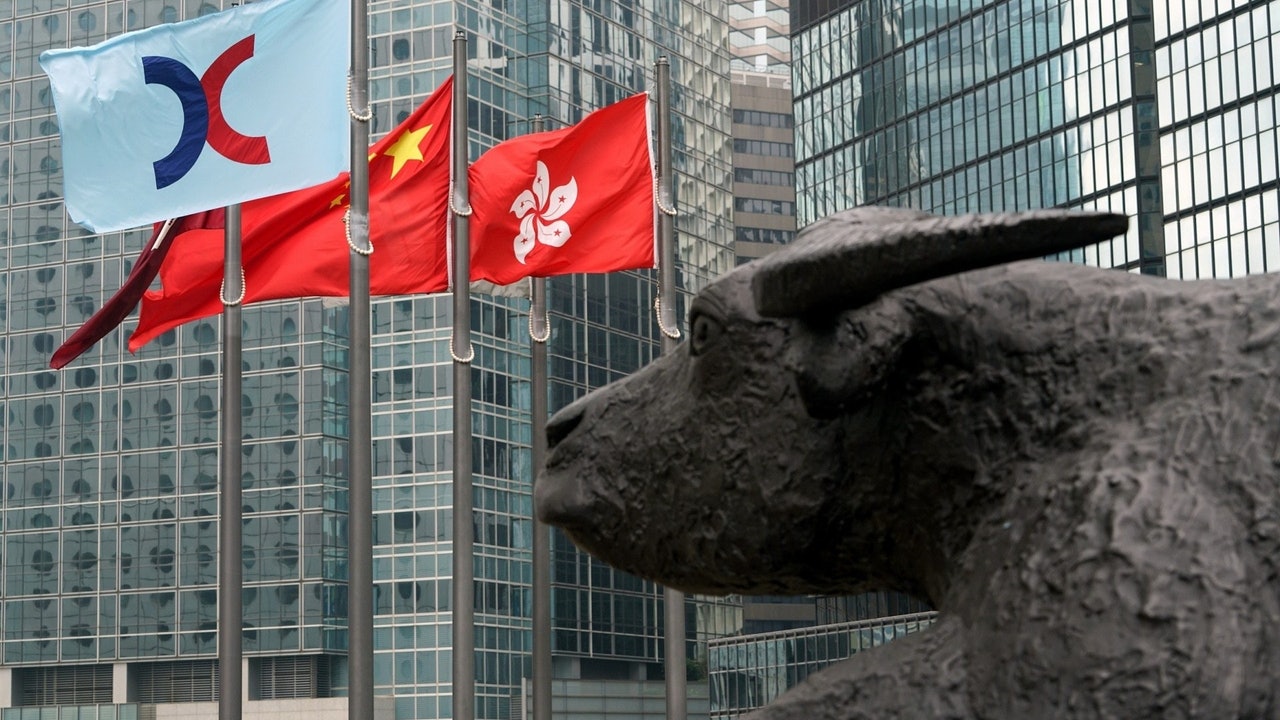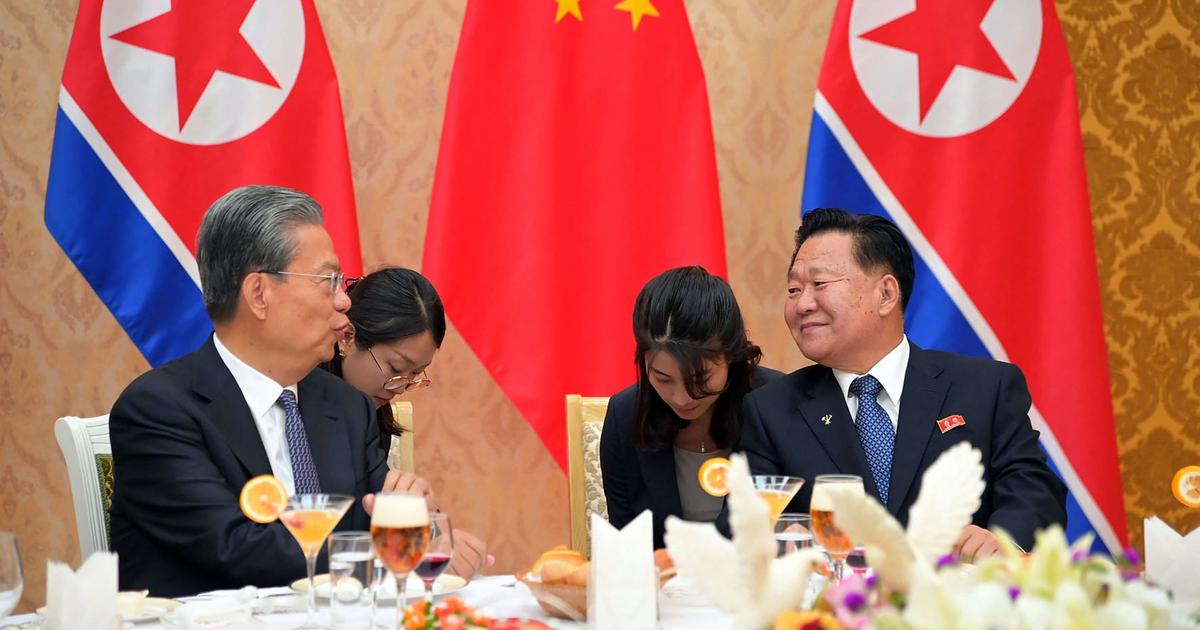On the 25th anniversary of China's return to China, one of the "bright" figures appeared in the Hong Kong stock market.
Since 1997, the market has been growing with the continuous development of the mainland economy. No matter the amount of funds raised or the volume of transactions, the increase is measured in multiples!
Chen Huiren, founder and investment director of Chartwell Capital, was also proud of the past market development when interviewed, but he bluntly said that the future hindering the development of Hong Kong stocks may be related to two local factors. The future trend is "cowhide"!
25 years after the return of Hong Kong, the capital market has undergone earth-shaking changes. With the increasingly close connection between Hong Kong and the mainland market, in 2007, the Hong Kong stock market looked forward to the "Hong Kong stock direct train", allowing mainlanders to directly buy Hong Kong stocks. The Hang Seng Index once surged to 31,958 points.
Although the "through train" failed in the end, the "Shanghai-Hong Kong Stock Connect" and "Shenzhen-Hong Kong Stock Connect" were launched in 2014 and 2016 respectively, and later extended to "Bond Connect" and other interconnection measures, which can be regarded as "Hong Kong Stock Connect". The variation version helps accelerate the inflow of mainland funds. In 1997, the average daily turnover of Hong Kong stocks was only over 15 billion yuan. By 2021, the turnover has greatly increased to 166.7 billion yuan, an increase of as much as 10 times.
Alibaba came to Hong Kong for a "secondary listing" in 2019.
(file picture)
Mainland companies account for more than half of the listed companies in Hong Kong
Similarly, in order to attract more international funds, mainland enterprises are also actively listing in Hong Kong. In 2018, the Hong Kong Stock Exchange (0388) implemented a listing structure reform, allowing new economic stocks with different rights structure and biotechnology companies without revenue. It can be listed in Hong Kong, and opens the way of "second listing" for Chinese stocks. Many "star" Chinese stocks, such as Alibaba (9988), Baidu (9888), Bilibili (9626) and Kuaishou (1024) etc., all returned to Hong Kong for listing.
Driven by capital demand and policies, Hong Kong has become the world's major fundraising platform. According to the Price of Bingham report, the Hong Kong Stock Exchange (0388) has ranked first in the global IPO fundraising list for seven years since 2009; from 1997 to the end of last year, The amount of funds raised by IPOs has tripled, and the total market value of listed companies as a whole will reach HK$42 trillion by the end of 2021, far higher than Hong Kong’s GDP of HK$2.86 trillion last year.
Over the past 25 years, more than 1,370 mainland companies have been listed in Hong Kong, accounting for more than 53% of the total listed companies and nearly 78% of the total market value. It can be seen that the mainland economy has a significant impact on the Hong Kong capital market. The largest reform since then, the number of constituent stocks has been greatly increased to 80 to 100, and WVR and secondary listing are also applicable.
Consultation summary of the five major reforms of the HSI
Two "local" concerns hinder the development of Hong Kong's capital market
When interviewed by "Hong Kong 01", the founder and investment director of Taisho Capital, Chen Huiren, reviewed the development of the capital market in the past 25 years. He thought it was something to be proud of.
The first major problem is related to the Hang Seng Index Company.
He pointed out that as the number of constituent stocks in the Hang Seng Index increases, it will be more difficult for the index to rise. It is an indicator that "represents" the ups and downs of the Hong Kong stock market, giving people a bad impression.
He gave an example, there are 32 Dow constituent stocks. "To speculate on the Dow, you have to buy 30 stocks. If you have dozens of Yijia (HSI) stocks, you only need to speculate." What's more, many constituent stocks are often in the Included when the stock price is high.
Looking back on the development of the capital market over the past 25 years, Chen Huiren believes that it is something to be proud of.
(file picture)
The Hang Seng Company Owes Strategy Index Difficult to Breakthrough
Looking at the information, on August 14, 2020, the Hang Seng Index Company announced that Alibaba (9988), Xiaomi (1810) and WuXi Biologics (2269) were included in the Hang Seng Index. The stock prices on that day were 246.8 yuan, 15.34 yuan and 53.8 yuan respectively. On Monday (27th), the stock price was 118.1 yuan (down 52%), 13.74 yuan (down 10.4%) and 76.65 yuan (up 42%).
The stock price of Orient Overseas (0316) has also risen from about 150 yuan a year ago to 222.6 yuan on Monday, an increase of more than 48%. However, the Hang Seng Index only announced in the middle of June this year that OOCL would be included.
Return to 25 years of major economic data changes
Although the shares must meet the requirements of market value and circulation, and meet certain thresholds, they are considered shares, but the above shares are all the shares that have been concerned by the market in the past two years, but the Hang Seng Index Company decided to include it when the stock price was high.
"Bloomberg" published a commentary last year, pointing out that after Alibaba's inclusion as a constituent stock, it has become an inevitable choice for many Hong Kong stock MPFs. Migrant workers bought the stock "reluctantly" in disguise and indirectly "lost their hands", pointing directly to Alibaba's inclusion Blue-chip timing is extraordinarily bad.
Chen Huiren also questioned that the Hang Seng Index seems to lack a strategy and lack transparency on the issue of "when to enter, click to enter". Also, the addition of multiple stocks when the stock is at a high level has greatly increased the scale of market capital, making it difficult for the index to break through past highs , "For the index to rise, it is almost necessary to see a big bull market first."
He said with a smile that many fund managers and issuers have switched to referencing or linking MSCI's "MSCI Hong Kong Index" or other related indexes, all because the other party is doing better than the HSI, "there are a few frogs in the bottom of the well. , the Hang Seng Index has no one to look at, and it has become the Trophy Index (honor index).”
(file picture)
Local companies remain stagnant and difficult to revitalize
The inclusion of stocks at high levels will undoubtedly drag down the performance of the Hang Seng Index, but the "indigenous residents" are also not up to par.
Chen Huiren pointed out that many companies in Hong Kong have been gaining momentum in the past 25 years. "In the past, real estate developers would build and buy properties, but the home became a rent collector. There was no motivation in the 1980s and 1990s, and there was no self-improvement. It’s all about speculation about the concept of rent collection, the price inflation rate is discounted, from 50% discount to 70%, and then it falls again, the most underestimated, but Link’s (0823) growth momentum is better than real estate developers.”
There are also some listed companies with small market capitalizations, which have been small and medium-sized enterprises for many years. "For more than ten years, they have been content with the status quo, paid high dividends, and kept seven percent or eight percent, which is very enjoyable." He believes that Hong Kong has become A little "old Feng", lost the entrepreneurial spirit, "There are a few big hands, as long as there are (mainland) people who fall, we will have money, have we ever changed? Money, there is no need to be prepared for danger in times of peace.” Therefore, the daily trading volume of the Hong Kong stock market exceeds 100 billion yuan, most of which fall on the top 100 stocks such as blue-chip stocks, while other stocks are almost backwater.
He hoped that Hong Kong enterprises and the government should think about how to revitalize and increase the market value of SMEs or start-ups. In the next 25 years, they should not rest on their laurels. Although Hong Kong is mature and the growth space may be limited, the Greater Bay Area can be considered as an entry point to increase the growth space. .
Another thing that goes against the trend is the Hong Kong government's increase in share stamp duty.
He pointed out that while the world is advocating to reduce stamp duty, Hong Kong is doing the opposite. He hopes that the new government will give more consideration to related issues.
The 25th Anniversary of China's Return|Changshi Zhao Guoxiong: The soaring property prices will no longer be soaring in the future. It is still difficult for young people to get on the car without fathers. Advantages Tang Yingnian calls for more public housing to share the success of the 25th anniversary of the return of Hong Kong | The role of Hong Kong is not only the middleman Xinhua Chairman Cai Guanshen: We are CIOs!
The 25th Anniversary of the Return







